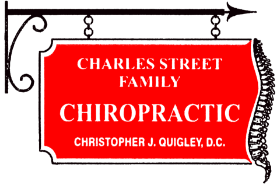Happy Registered Dietitian Nutritionist Day!
In honor of this day and in recognition of National Nutrition Month, sponsored by the Academy of Nutrition and Dietetics, I bring you a healthy serving of nutrition tips to help jumpstart your spring cleaning-from the inside out!
The year’s theme of “Bite Into A Healthy Lifestyle” encourages not only healthy food choices but also encourages movement. Your nutrition and lifestyle has more of an impact on your overall health than genetics. Dr Jeffrey Bland talks about this in detail in his book, The Disease Delusion, a comprehensive look at functional medicine.
So what makes up a healthy lifestyle?
There may be disagreements on what is considered a “balanced diet” and therefore I dislike that term. Should we be eating 65% of our calories from carbohydrates or 55% or 20%? The honest answer is “it depends”. There is no one size fits all diet and each person has unique needs. Those needs may also change depending on the current goals and situation. The percentage will also change if you cut calories to lose weight. If you cut calories from all food groups you could be lacking protein and defeat part of the purpose so obviously the percentages will change, at least temporarily.
If you are trying to lose weight, for example your diet might be considered “unbalanced” as you cut carbohydrates, fat and calories versus when you are just trying to maintain your weight. The calorie in versus calorie out theory is not perfect, but in the end, calories do matter. The quality and composition of those calories may matter even more. To lose weight you will need to eat less calories or at minimum improve the quality of the calories you are consuming. Typical nutrition fact labels use 2,000 calories as a reference. If you want to lose 1 pound of fat which is equivalent to 3500 calories, you could start by decreasing your calorie intake by 500 per day to lose that pound in a week.
In most instances the following tips will apply and is a good place to start your internal Spring cleaning.

Make your plate mostly vegetables at each meal
Consume the right amount of calories to meet your current goals.
A nutritionist can help assess your current body composition and provide guidelines as to the approximate calories you need. If you are currently maintaining your weight, then great job, no need to worry about calories.
Consume adequate protein.
If you know your body composition you can use the guide of .8-1 gram of protein per pound of lean body mass. In general you can also use the rule of thumb of half your body weight in ounces. Most omnivores get at least this amount. So at 150 pounds shoot for 75grams. Choose the cleanest animal sources such as organic and pasture-raised whenever possible. Chose animals that were fed their natural diet. That means grass eating cows, roaming bug-eating chickens and wild fish.
Make your plate mostly vegetables.
Ideally try this at each meal. That means veggies in your morning smoothie or veggies in your omlette. Veggie sticks, pickle spears or raw saurkraut as a snack. Leafy green salad at lunch. 2-3 cups of vegetables at dinner. Choose organic whenever possible and in the budget.
Consume healthy fats at each meal for energy and satiety.
The amount will depend on your calorie and weight goals but go for a little fat at each meal. More if your calorie budget is generous. Think olive oil, coconut oil, avocado, nut butters, grass fed butter or sometimes the fat may come naturally from the meat or protein on your plate. Fat also makes food taste good. Taste is still the number one driver of food choices. Turn in the fake foods for real food plus real fat=real flavor.
Carbohydrates should come from dense carbohydrate sources versus processed foods.
Think starchy vegetables and sweet potatoes. Small amounts of whole grains and legumes as tolerated. Whole fruits versus juices. Nuts also contain carbohydrates in addition to their fat and protein. The amount of recommended carbohydrates will also vary. Minimize carbohydrates for weight loss. Even too much fruit can hinder weight loss efforts. If you are struggling on your own a Registered Dietitian Nutritionist can help.
If you choose to consume dairy, my philosophy is go for the cleanest and most whole sources.
This means look for whole milk products from organically raised, grass fed animals whenever possible. Fermented dairy may be better tolerated such as yogurt, kefir and some cheeses.
Hydrate.
Drink half your body weight in ounces.
Sleep.
We have a country chronically sleep deprived. Go to bed at a reasonable hour each night to aim for 6-8 hours of quality sleep. Not only to get enough sleep but many find they get the munchies at night and one way to help weight loss efforts is simply go to bed before the temptation to munch begins.
Move your body.
My favorite response to the exercise question is “the best exercise is the one you will do”. No need for fancy equipment or pricey gym memberships unless that is what you enjoy or will be held accountable to. It is worth paying for personal training if the appointment makes you show up. Otherwise just get up and move. Frequently. Sitting at a desk all day is an independent risk factor for poor health. Get up, walk around, bend, stretch, jump, and ideally go outside in the fresh air for a walk.
Now, if that ice outside would only melt….
